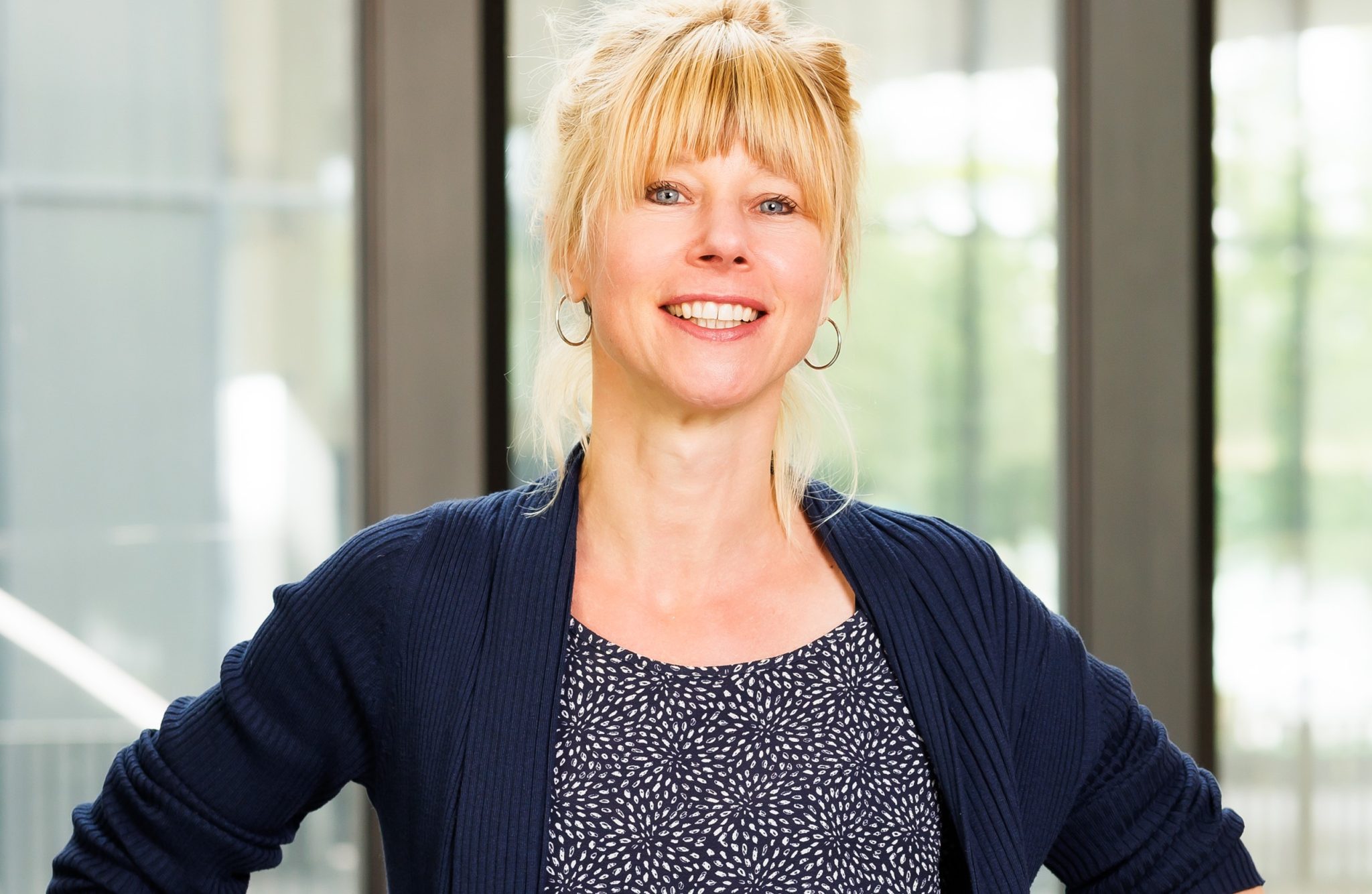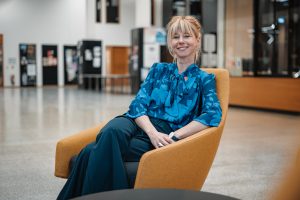Janne Fengler is committed to shaping the future of teaching and learning. As newly appointed Vice-Dean of the Faculty of Humanities, Education and Social Sciences, she shares her vision and approach on advancing education in the Faculty and beyond.
You joined the University of Luxembourg in April 2024, more precisely the Faculty of Humanities, Education and Social Sciences as professor in educational sciences. Why did you decide to join our institution and what were you first impressions?
I am enthusiastic about the international orientation of the University of Luxembourg. 60% of our students are international students, they are from approximately 140 countries, the staff is similarly diverse. This creates a very stimulating mix in terms of multiple perspectives and a concern for mutual understanding. On top of that, I experience the University of Luxembourg as a modern and agile institution of tertiary education with a lot of initiative and drive.
When the offer of a professorship in teacher training came from the University of Luxembourg, I thought it would be a very good fit, and I still do: I think it’s great to be able to contribute my experience here now.
What I love about the job profile of a professor, among other things, is its variety and diversity. I enjoy exploring my own research questions, guiding students as they develop their qualifications for future careers in education, and contributing to the academic administration that shapes a university’s profile and identity, its departments, and its processes. I have gained a lot of experience in these areas over more than 15 years which was very satisfying and fulfilling.
Since 15 January, you have been appointed as the Vice-Dean of the Faculty. How do you envision you contribution in this new role?
I have had eight years of experience as vice dean and dean before joining the University of Luxembourg. In addition, I have held responsibilities in other areas of academic self-administration such as the senate or board of trustees. I am also internationally involved in accreditation processes in Europe and beyond, be it at the level of accreditation of study programmes or at the level of departments, faculties and universities. When the suggestion of standing for election for vice-deanery of the Faculty of Humanities, Education and Social Sciences was presented to me, I was curious because I hadn’t been working here for long. My onboarding is still ongoing, I am learning something new from day to day – starting with getting to know new colleagues, moving on to organisational units and processes, and extending beyond the University into the country. Some aspects are similar to the contexts I know, others are different. I am convinced this can be a good opportunity to look at things open-minded and with a learning attitude.
‟ The better we succeed in taking into account the whole person in their learning and development the more likely we are to empower our students to become responsible citizens of tomorrow.”

Vice-dean of the Faculty of Humanities, Education and Social Sciences
In addition, I continue our well-established cooperation and working relationship with the Luxembourg Ministry of Education, together with the Department of Education and Social Work. We are tackling the shortage of teachers in the primary school sector together and are pulling in the same direction here. We have already achieved a great deal, and [JF1] we still have important tasks ahead of us.
I have found the collaboration with Robert Harmsen as Dean, the colleagues in the Dean’s office and the team of the faculty’s quality office to be very fruitful and constructive. In the near future, there will certainly be more opportunities to talk to a variety of stakeholders. I am looking forward to having conversations with students, teaching and administrative staff as well as the heads of the five departments of our faculty and the Luxembourg Centre for Educational Testing (LUCET), plus those responsible for teaching and learning in the Dean’s Offices of the other faculties. I reckon that this will help me understand the needs and development ideas even more comprehensively from different perspectives.
What are your concerns regarding teaching and learning?
The University of Luxembourg has a strong research focus and our success achieved here is an important part of our university’s profile. In addition to this, I believe we should strengthen the relevance of academic teaching and consider it more strongly as an important quality feature of our tertiary education. Many colleagues from the teaching staff are passionate about their academic subject and perceive their educational mission for their students, so their teaching, to be an important part of their academic work. This deserves recognition, acknowledgement and consideration. One of the responsibilities we have as the country’s only University is to prepare tomorrow’s professionals for an uncertain, complex and ambiguous future – in terms of knowledge, skills and attitudes. So we are talking about a specialised academic qualification in the respective subject at the Bachelor’s, Master’s or PhD level, but also about so-called transformative or future skills. Education should be understood a holistic endeavour. The better we succeed in taking into account the whole person in their learning and development – challenging not only their cognitive potential, but also fostering their values and skills sets – the more likely we are to empower our students to become responsible citizens of tomorrow. People who are engaged with the world around them and who do their best to make constructive, solution-oriented contributions to society. I consider this to be an important part of our third mission. Philippe Hiligsmann, our new Vice-Rector for Academic and Student Affairs, seems to have a similar approach, and I look forward to working together in this direction.
Where do you hope to be in 5 years?
One step at a time. The path appears when you start walking.
